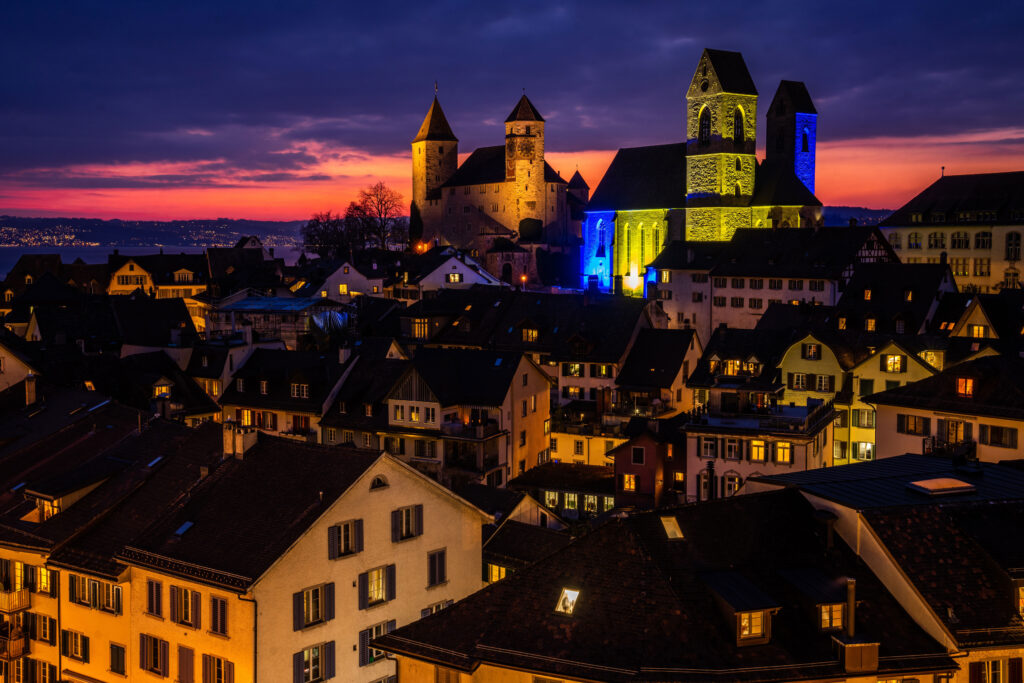Volcanoes are erupting in The Philippines, but on-fire Australia received some welcome rain. The Iran war cries have been called off and The Donald’s military powers are about to be hamstrung by the Senate. Meanwhile, his impeachment trial is starting, and we’re all on Twitter for a front-row seat.
Op-ed: In Europe, helping refugees is trending in spectacular fashion. That’s great.
It would be even better if we could treat all refugees this way.

‘‘Everyone is afraid,’’ a Ukrainian mom said to me earlier this week as she stood in a packed line of exhausted refugees waiting to complete questionnaires and get fingerprinted as part of the application process for a new S Permit promised only to Ukrainian refugees in Switzerland.
Fear is inherent in refugees. I know this from my years organizing activities and community support for asylum seekers from Afghanistan, Ivory Coast, Uganda, Albania, Georgia, Pakistan, Turkey, and Nigeria, and Syria. When I meet new arrivals and hear stories of families walking and transporting themselves for weeks or even years to reach a safe nation, I’ve wished for them to feel something other than fear. When refugees arrive in a stable, prosperous country like Switzerland, practically a paradise compared to what they have left, I have wished those refugees to feel welcomed, safe, and even celebrated. Over the last two weeks, it looks like my wish has at last come true—for Ukrainians.
‘‘You are safe,’’ I repeat to the Ukrainian moms. These asylum seekers have changed the concept of ‘‘refugee’’ here, it seems overnight. And though I’m thrilled for this transformation of my community in the wake of Russian President Vladimir Putin’s war crimes, I can’t help but think of the countless other refugees, many of them people of color, who have come to Europe from other nations to meet wildly different conditions than the Ukrainians are meeting now.
The governmental response in Switzerland and many other European countries to the Ukrainian refugee crisis has been one of determined solidarity. In Switzerland, Germany, and Austria, Ukrainians can travel free by train to reach safe shelter. A local Swiss cell provider is offering free SIM cards to those with Ukrainian passports. Ukrainians are permitted to live in private residences immediately upon arriving if they have the funds or can find a host family, and they may work within one month of arrival. This would be a dream come true for other refugees, who at first are required to live in cramped, state-run, armed facilities. They wait months or years for residence permits, which are awarded or not based on often inexplicable decisions. Some refugees I’ve met have not been permitted to work for as long as seven years.
The life of a teen Afghan girl I know who arrived in a shipping container from Greece three years ago, for instance, has not changed at all in the meantime. She still has an F Permit, which means she has been ordered to leave but is permitted to stay because it is unlawful to deport her. She studies French, has no work, and lives in constant fear of deportation.
The governmental action alone in Switzerland is unprecedented. But those systems can barely keep up with the efforts of private citizens who offer not just homes but clothing, food, jobs, and help with residential paperwork and other assistance via grassroots efforts or organizations like United for U. All over Europe, regular people are flinging open their doors to Ukrainians, to people who may look a lot like them.
‘‘How can I help?’’ Moms, dads, doctors, and professionals in my community pop up like angels in my text messages. On Facebook and WhatsApp they share links and ideas for helping the Ukrainian refugees. They exchange news stories and laws daily, relaying refugee facts on our chat like the business of displacement has become the new stock market. Neighbors of all ages offer homes, garages for supply storage, curtains for new refugee centers, medical supplies and expertise, and more.
‘‘We’ve got a five-year-old boy in need,’’ someone texts. ‘‘Another family has a young girl in need of clothing,’’ reads another message. Shoe and clothing sizes are tracked and logged. A local group of moms zips around collecting supplies.
“Why wait for the systems to catch up when so many people want to help refugees right now?’’ I said to my husband the other night. Every day we have an opportunity to fight. We fight with our homes, our skills, our funds, and our compassion. And in many ways, it feels like we are experiencing something spectacular even as we face a European war.
‘‘We found out how to get help from our synagogue,’’ a group of Ukrainians tells me. I see in them a sense of peace I’ve never seen before in refugees.
‘‘I can’t wait till this whole thing is over. Then we can invite you to visit us and show you our beautiful Ukrainian country,’’ a mom said to me after we hugged.
‘‘Me neither,’’ I mumbled, trying to picture the image she described without crying.
Later an Afghan refugee teen named Fatima texted me from inside the camp where she has lived for months. She hasn’t received information about residency or schooling. She says she lives in fear of never learning about the stars. She wants to be an astronaut. Another mostly blind woman from the Ivory Coast texted me from her flat in Zürich this week. Because of her condition, she can’t work. Her five children don’t have enough food, so her fear leads to more pain and sleepless nights.
‘‘Refugees shouldn’t be afraid,’’ Virginie Stupala, a translator by trade who volunteers in my community texted the other day. Virginie is determined to help, to clear the fog of alarm and confusion for those arriving in a new country with only suitcases. Everyone wants to believe that refugees shouldn’t feel afraid in a safe place like Switzerland. But I haven’t told her the stories of other refugees I know who were handcuffed and deported in the night after years of living here. I haven’t described to her those who did not receive help with paperwork, who have not received access to jobs and private housing like the Ukrainians are now being given.
The outpouring of assistance to Ukrainians is relatable, inspiring, rooted in good. And perhaps the knowledge that volunteers like Virginie are gaining about the plight of Ukrainian refugees will be carried on to support others in the future. Because the difficulties of displaced and traumatized moms, dads, and kids from every nation, not just Ukraine, is one that needs to be considered more carefully by the world.
I keep thinking about all the people who want to help refugees now, and hoping that they mean all refugees.


